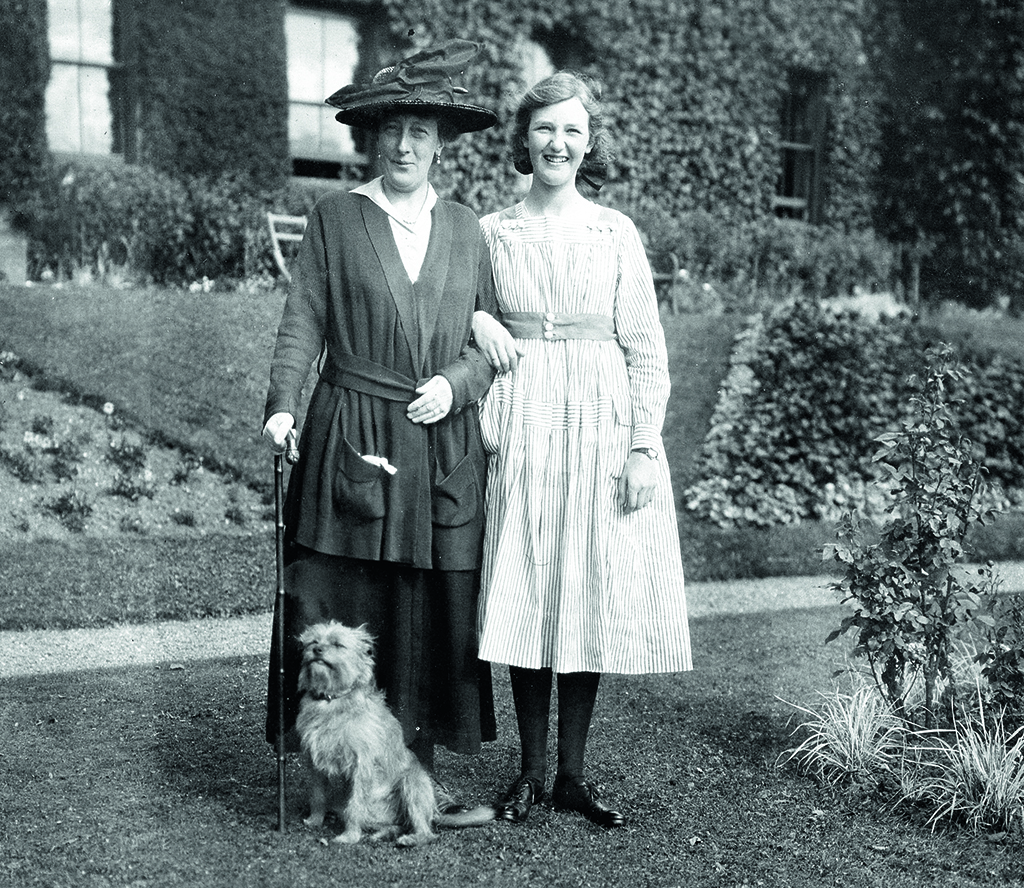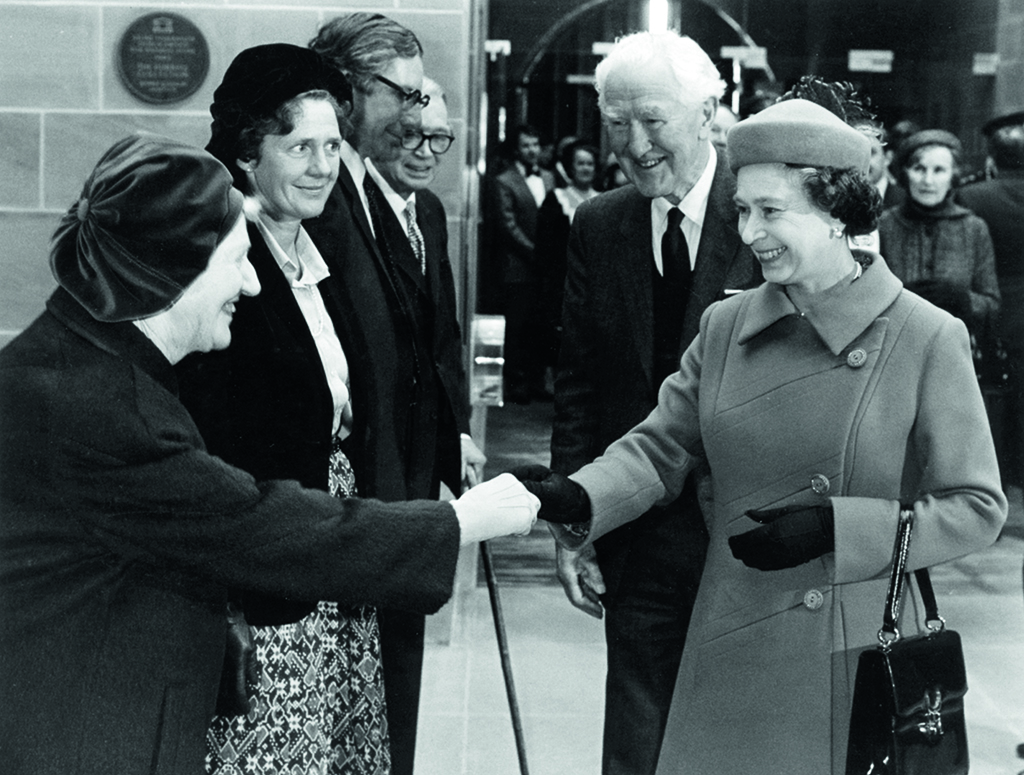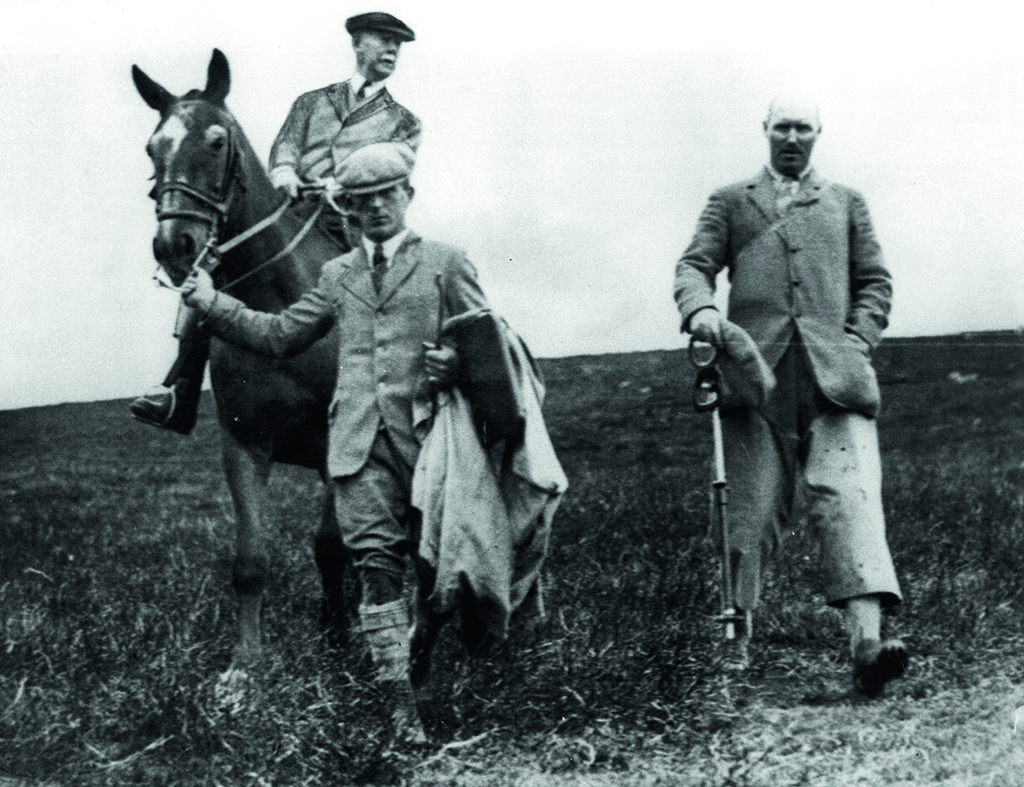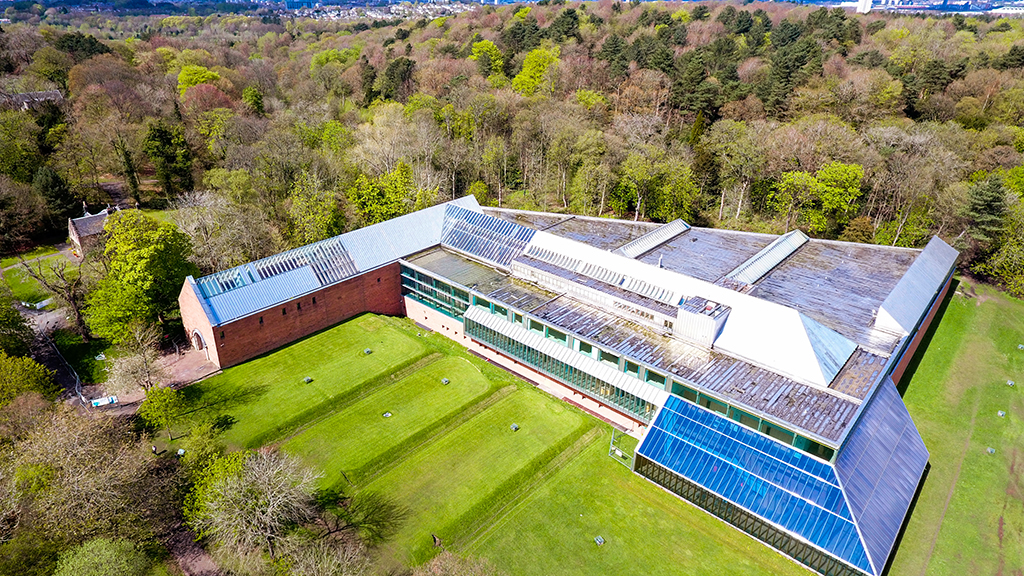
The forgotten daughter of Sir William Burrell
Behind the remarkable collection gifted to Glasgow by philanthropist Sir William Burrell, lies a bitter family feud and a daughter who could never fulfil her father’s expectations.
More than twenty years ago I set out to unravel a mystery, but with no idea where my mission would lead. It all began with the death in 1992 of Marion Burrell, my godmother and one of my dearest friends; indeed, our two families have been friends for generations. Marion’s father was Sir William Burrell, the famous philanthropist who gave the Burrell Collection to the City of Glasgow and who contrived to keep his family life hidden from the public eye.
Yet on Marion’s death, she left clues to their past which have allowed me to unearth an extraordinary history which would have otherwise have been lost.
From the beginning Marion’s life was far from commonplace. She was the only child of an ambitious man accustomed to success. William Burrell first found fame as a shipowner and having made his fortune in the world of commerce he became a leading collector in the world of fine arts.
An autocrat who went his own way, he thought and acted differently from other men. Burrell’s daughter Marion, who would bear the stamp imprinted by her father, was also destined to be different.

Mother Constance and Marion at Kilduff House in East Lothian with Letham the dog
Marion encountered trouble as soon as she was born because she was to be an only child.
Not only did she fail to be the son her father desired to crown his success with a dynasty of celebrated Burrells but, to make matters worse, Marion’s birth was a traumatic event from which her mother’s health never fully recovered.
Constance Burrell continued to ail and fret while her devoted husband spent the rest of his life cosseting and protecting her as her troubled mind became deranged against her daughter.
Yet Marion was an undeniably talented girl, and when the disappointed William finally perceived the potential in his only child, his ambitions knew no bounds. He ordained that Marion would now uphold his family name and reclaim the social status that his ancestors once held.
Back in the 18th century the Burrells had been landed gentry in Northumberland until one of William’s forbears wantonly sacrificed their family estate through gambling. At the height of the Industrial Revolution, that gambler’s impoverished grandson came north to forge his way in Scotland.

Marion meeting the Queen at the opening of the Burrell Collection in 1983
This hard-strapped Burrell was Sir William’s grandfather who, together with his son, founded the company from which the collector’s success would ultimately grow.
Her father’s overweening ambitions for her meant that Marion was condemned to a miserable childhood. So that she would become a fluent linguist the child was reared first by a French governess, and then by a hated German one while being banned from speaking any other language. Toys were permitted only one at a time and pocket money was forbidden because her father, having learned the merit of thrift, was determined that his wealth should never corrupt his daughter. This policy was destined to plague Marion’s life.
Another of Burrell’s ambitions was his desire for a castle to house his collection. The restoration of Hutton Castle in the Borders caused endless trouble so Marion was thankful to be sent off to a smart boarding school and then ‘finished’ in Paris where she acquired all the attributes necessary for an aristocratic marriage.
No expense was spared and Marion played her part to the full: captivating, charming and vivacious, her entry to society was sensational.

Sir William Burrell mounted, accompanied by Lord Digby while grouse shooting at Mayshiel
Burrell was an honest businessman who never disguised his Glaswegian roots, but his daughter was groomed for life at the top. He lavished a fortune on two London Seasons while Marion enjoyed the social whirl and collected a host of friends. But, like her father, Burrell’s daughter had a mind of her own.
After three broken engagements there was an almighty row when Marion finally rebelled against parental manipulation and vowed never to marry.
Love did not elude her because there were several clandestine affairs. Fearing a public scandal her suspicious parents tried to keep her at home without funds or transport.
Believing himself badly let down by his only child, Burrell resolved to endow his huge collection to the City of Glasgow. Guests at Hutton Castle found Sir William a delightful and entertaining host as the neurotic Lady Burrell presided while devising schemes to punish their ungrateful daughter.
When war broke out in 1939 Marion became a volunteer nurse at Peel Hospital near Selkirk and lived there while tending wounded soldiers.
No stranger to suffering, Marion brimmed with human kindness. After the war she returned to live with her aged parents once again as she had not the means to do otherwise.
Things, however, went from bad to worse. There were endless staff problems and when their domestic arrangements became difficult her parents abandoned her and went off to stay in a hotel, leaving her almost penniless and at the mercy of malicious servants who took pleasure in mistreating their daughter. By this time Marion had reached breaking point and in utter desperation she finally fled penniless from her family home, never to return. It seems hard to believe that she was aged 47.
Kind neighbours were happy to house her until she was able to support herself for a year as a matron at a boy’s prep school. Her aunt, Mary Mitchell, also welcomed and employed her for a time and then she travelled to South Africa and Australasia, working her way as a nurse, stewardess, governess and lady’s companion.
Back in Scotland she was still hard up but refused any contact with her parents. In 1958 Sir William died aged 96, his wife Constance following three years later. Burrell tried to cut his daughter off without a penny but under Scots law, Marion was able to receive one third of his estate so, at the age of 58, she was free at last to buy a property of her own. The home she chose was a modest flat at Findhorn Place in Edinburgh.

The Burrell Collection in Glasgow’s Pollok Park
For the last eight years of Sir William Burrell’s life they had remained totally estranged though father and daughter had much in common and countless interests which they longed to share.
In spite of their conflicts Marion never ceased to admire her father and take enormous pride in his collection, for Burrell was at heart a generous man who strove to benefit mankind by endowing his life’s work to his native city of Glasgow.
The Burrell Collection is a unique testament to him, a trove of rare value because it was assembled by one extraordinary man. Though the ghosts of the past continued to haunt her, Marion’s intrepid spirit overcame adversity.
At the ripe old age of 75, she astonished us all by enigmatically changing her name to Silvia. In the end, the indefatigable Miss Burrell ensured that the story of her troubled life would have a happy ending.
During her declining years at Findhorn Place she had continued to live frugally, so when she died, aged 89 in 1992, it came as a complete surprise to discover that Sir William’s daughter had endowed a new lifeboat.
The following year saw a great celebration at Girvan harbour in Ayrshire when crowds gathered to witness the naming of a new Mersey Class lifeboat which would now be known as ‘Silvia Burrell’.
As a shipbuilder’s wife I had never launched a ship but that day I was asked to perform the naming ceremony and wore the little turtle brooch which William Burrell had given his seven-year-old daughter after she launched the Strathlorne for Burrell & Son eighty years before.
Her father’s fortune had come from the sea and by honouring the RNLI, my godmother paid her final tribute to the gallantry of those heroic men who preserve the lives of those who fall foul of it.
Collector’s Daughter, a book by SMO Stephen, is out now priced at £9.99.
Visit The Burrell Collection, Pollok Country Park, 2060 Pollokshaws Road, Glasgow, visit www.glasgowlife.org.uk.
This feature was originally published in 2014.
TAGS

